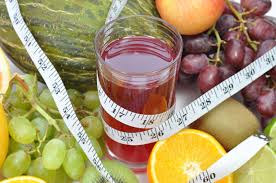 Detox stands for detoxification and basically means that you are attempting to remove toxins from your body to jump start a diet or to feel healthier. The practice has been around for centuries. Today there are products that promise you’ll have more energy, lose weight and get rid of the toxins that are robbing you of your ability to feel and be healthy.
Detox stands for detoxification and basically means that you are attempting to remove toxins from your body to jump start a diet or to feel healthier. The practice has been around for centuries. Today there are products that promise you’ll have more energy, lose weight and get rid of the toxins that are robbing you of your ability to feel and be healthy.
Fortunately, our body already has a detoxification system installed and functioning 24 hours a day. Your liver will filter out toxic substances from your food before they enter the blood stream, the colon will keep toxins in the stool so they don’t enter the body and the kidneys will filter the blood of toxins and pass them along to the urine.
However, the modern day detox diet is more of a severe fasting liquid diet with some form of fat-burning power. Most of the products sold are not regulated and may contain diuretics, or chemicals that force your body to excrete more water than normal. This results in a quick water weight loss that might be motivating but will quickly return once you stop taking the chemicals.
These diets will drastically cut your calories but should never be used for more than several days because you also lose minerals, nutrients and vitamins. One pound is equal to 3500 calories. If your basal metabolic rate (or the number of calories you burn by just breathing) is around 1200 and you do nothing but sit at a desk all day you’ll need to drink only water for 3 days to lose just one pound!
The type and amount of food you are allowed during the diet will depend upon the program. However, they are short term solutions to a long term problem. They are not a way of eating that anyone can sustain in the long run. It will require a big effort on your part because you’ll be hungry most of the time and will also probably feel weak.
You’ll be working very hard over 3-5 days to stop eating your normal foods, only to likely return to the way you were eating previously because you will feel deprived from your normal eating habits.
It was your normal eating habits that caused the issues in the first place, so it’s important, whether you use a detox diet or not, that you change your nutritional habits to reduce your toxic load.
Some detoxification programs require that you take supplements, pills, powders or packaged colon cleansing.
However, while most people approach a detox diet with the intention of losing weight, the diets are really intended to cleanse your body of pollutants from your environment.
If you choose to try a detox diet, it’s important that you check with your physician first to ensure that it won’t cause problems with any underlying medical conditions or medications you may be taking. Without physician clearance you may be putting your overall health at risk or potentially trigger a metabolic issue.
Resources:
Dr. Oz: 48 Hour Weekend Cleanse
http://www.doctoroz.com/videos/48-hour-weekend-cleanse
NBC: A Detox Diet That Isn’t Crazy
http://www.nbcnews.com/id/36716807/#.UxZZzfldWSo
Fitness Magazine: 11 Healthy Ways to Detox
http://www.fitnessmagazine.com/weight-loss/plans/diets/healthy-detox-diets/
Self: Clean Up Your Diet
http://www.self.com/health/2009/07/seven-days-to-slim
Fitness Magazine: What is a Detox Diet
http://www.fitnessmagazine.com/weight-loss/plans/diets/the-truth-about-detox-diets/
Kid’sHealth: Are Detox Diets Safe
http://kidshealth.org/teen/food_fitness/dieting/detox_diets.html
MayoClinic: Do Detox Diets Offer Any Health Benefits
http://www.mayoclinic.org/detox-diets/expert-answers/faq-20058040


Leave a Reply